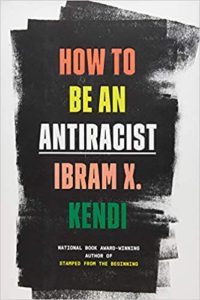JAMES H. CONE RACIAL JUSTICE RESOURCES
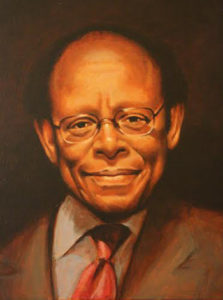
art by Barney Judge
Today we face continued racism and resurgent White Supremacy. Faithfulness to the God Jesus reveals includes doing some homework, especially for those who don’t face these realities every day. This page includes resources for that purpose, starting with James H. Cone’s brilliant and searing book, The Cross and the Lynching Tree, which situates the cross of Jesus as a lynching.
According to the Tuskegee Institute, 4,743 people were lynched between 1882 and 1968 in the United States, including 3,446 African Americans. This was a campaign of domestic terrorism. While theologians of privilege debate the intricacies of “atonement theory” the horror of the cross has been revealed before our eyes on the lynching tree, largely neglected by much of the church.
The portrait of James Cone, above, is an original artwork by Barney Judge, inspired by reading The Cross and the Lynching Tree, our 2019 Lenten read.
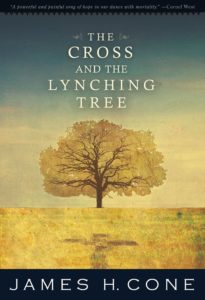 So this is a great place to start, The Cross and the Lynching Tree, and/or to listen to the six podcasts that Emily Swan created as a guide for this important book.
So this is a great place to start, The Cross and the Lynching Tree, and/or to listen to the six podcasts that Emily Swan created as a guide for this important book.
The Cross and the Lynching Tree Podcasts with Emily Swan
The Cross and the Lynching Tree, Intro
The Cross and the Lynching Tree, Week 1
The Cross and the Lynching Tree, Week 2
The Cross and the Lynching Tree, Week 3
The Cross and the Lynching Tree, Week 4
The Cross and the Lynching Tree, Week 5
The Cross and the Lynching Tree, Week 6
Series link (for RSS readers): The Cross and the Lynching Tree, 2019 Lenten podcast
Lenten Read for 2020
Web Series
The Next Question The Video Web Series Imagining How Expansive Racial Justice Can Be. Hosted and produced by Austin Channing Brown, Jenny Booth Potter, and Chi Chi Okwu.
Podcasts
Seeing White
Teaching Hard History
The Nod
The Stoop
Another Round
Code Switch
News Feeds Featuring African-American Journalists
The Michigan Chronicle
The Root
News One
Movies About or From an African-American Experience
13th A documentary about the 13th Amendment to abolish slavery and its aftermath—a period of the systematic brutalization of African Americans in the Jim Crow era (legally enforced discrimination).
I Am Not Your Negro In 1979, James Baldwin wrote a letter to his literary agent describing his next project, Remember This House. The book was to be a revolutionary, personal account of the lives and successive assassinations of three of his close friends—Medgar Evers, Malcolm X and Martin Luther King, Jr. At the time of Baldwin’s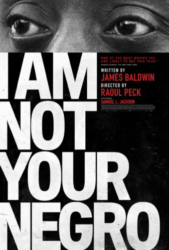 death in 1987, he left behind only thirty completed pages of his manuscript. Now, in his incendiary new documentary, master filmmaker Raoul Peck envisions the book James Baldwin never finished. The result is a radical, up-to-the-minute examination of race in America, using Baldwin’s original words and flood of rich archival material. I Am Not Your Negro is a journey into black history that connects the past of the Civil Rights movement to the present of #BlackLivesMatter. It is a film that questions black representation in Hollywood and beyond. And, ultimately, by confronting the deeper connections between the lives and assassination of these three leaders, Baldwin and Peck have produced a work that challenges the very definition of what America stands for.
death in 1987, he left behind only thirty completed pages of his manuscript. Now, in his incendiary new documentary, master filmmaker Raoul Peck envisions the book James Baldwin never finished. The result is a radical, up-to-the-minute examination of race in America, using Baldwin’s original words and flood of rich archival material. I Am Not Your Negro is a journey into black history that connects the past of the Civil Rights movement to the present of #BlackLivesMatter. It is a film that questions black representation in Hollywood and beyond. And, ultimately, by confronting the deeper connections between the lives and assassination of these three leaders, Baldwin and Peck have produced a work that challenges the very definition of what America stands for.
The African Americans: Many Rivers to Cross (2013) This six-part PBS documentary series chronicles the entire African-American experience, from slavery to President Barack Obama’s reelection. More than 30 historians were consulted during the making of the documentary. The series won a Peabody Award.
The Black Power Mixtape 1967–1975 (2011) Civil rights icons from Dr. Martin Luther King, Jr. to Huey P. Newton and Harry Belafonte are featured in this documentary comprised of newly found footage shot during the height of the black power movement. Modern African-American activists like rapper Talib Kweli and singer Erykah Badu provide commentary over top of the film’s powerful historical images.
The Butler (2013) Director Lee Daniels is one of Hollywood’s most powerful black filmmakers and his historical drama The Butler cemented his status by collecting over $175 million at the box office. The movie follows an African-American butler who works at the White House for three decades, starting in 1957. The film features an all-star cast of black actors including Forest Whitaker, Oprah Winfrey and Terrence Howard.
Down in the Delta (1998) Author Maya Angelou directed this drama about a family in Mississippi. Alfre Woodard turned in a powerhouse performance and was joined in the cast by Wesley Snipes. The film examines the troubles in the family at its center and the strong roots that keep them together.
ESPN 30 for 30: Ghosts of Ole Miss (2012) Part of ESPN’s award-winning documentary series, Ghosts of Ole Miss is a 60-minute film about the 1962 University of Mississippi football season, which coincided with the school’s racial integration. The movie is a focused look at one explosive year when the small campus in Oxford, Mississippi became a national focal point.
Fruitvale Station (2013) With the ongoing debate over policing practices toward African Americans, the plot of Fruitvale Station remains poignant. Directed by Ryan Coogler and starring Michael B. Jordan—the team behind 2015’s Creed—this film follows the true story of Oscar Grant, a young man who was killed in 2009 by transit police in Oakland, California. Jordan and Oscar winner Octavia Spencer give powerful performances.
Hard Lessons (1986) A young Denzel Washington stars here in one of his first films, directed by African-American filmmaker Eric Laneuville. It follows the true story of Los Angeles teacher George McKenna, who tries to put his students on the right track, away from lives of drug abuse and gang violence.
Mississippi Damned (2009) Up-and-coming black filmmaker Tina Mabry wrote and directed this indie drama based on her own life growing up in Tupelo, Mississippi. The movie takes a hard look at the effects the cycle of poverty can have on children and families.
Pariah (2011) This Sundance critical darling follows the trials of a 17-year-old African-American lesbian. The lead performance from Adepero Oduye drew praise as a character who feels unwelcomed by both society and her own family. In 2015, Pariah writer-director Dee Rees made HBO’s Emmy Award-winning film Bessie.
The Trials of Muhammad Ali (2013) Boxer Muhammad Ali’s battles outside the ring take the spotlight in this documentary. Ali’s refusal to fight in the Vietnam War and his conversion to Islam are discussed by friends and historians. Interview subjects include trainer Angelo Dundee and Minister Louis Farrakhan.
Through a Lens Darkly (2014) This NAACP Image Award-winning documentary focuses on historic pictures taken by black photographers. The film showcases the talents of various black photojournalists while also giving an up-close view to some of the bleakest moments in American race-relations history.
Undefeated (2011) This film about a struggling Memphis high school football team was the first documentary directed by an African American to win an Oscar. The movie has been overwhelmingly praised by critics, racking up a 96 percent rating on Rotten Tomatoes.
The Watsons Go to Birmingham (2013) Based on the 1995 Newbery Honor-winning novel, this film tells the story of an African-American family who travel from Michigan to Alabama in the summer of 1963. The film features performances from David Alan Grier and Wood Harris.
Books
Stamped from the Beginning: The Definitive History of Racist Ideas in America by Ibram X. Kendi
Raising White Kids: Bringing Up Children in a Racially Unjust America by Jennifer Harvey
Black Pain: It Just Looks Like We’re Not Hurting by Terrie M. Williams
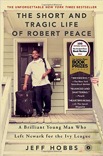
The Short and Tragic Life of Robert Peace by Jeff Hobbs This moving biography recounts the life of Robert Peace, a young man who escaped the streets of Newark, New Jersey, to attend Yale University — only to lose his life after graduating
The Fire Next Time by James Baldwin One of James Baldwin’s most important book of essays, The Fire Next Time explores themes of race, religion and identity.
Between the World and Me by Ta-Nehisi Coates Toni Morrison has described this debut book from Ta-Nehisi Coates as a “required reading.” In the form of a letter to his teenaged son, Coates distills what it means to be black in America today.
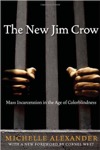 The New Jim Crow: Mass Incarceration in the Age of Colorblindness by Michelle Alexander Scholar and activist Michelle Alexander examines the impact of law enforcement and mass incarceration on race relations in present-day America.
The New Jim Crow: Mass Incarceration in the Age of Colorblindness by Michelle Alexander Scholar and activist Michelle Alexander examines the impact of law enforcement and mass incarceration on race relations in present-day America.
 Ain’t I A Woman: Black Women and Feminism by Bell Hooks For the reader who wants to learn more about black feminism, Ain’t I A Woman is considered one of the most important and comprehensive works on how sexism and misogyny specifically affects women of color.
Ain’t I A Woman: Black Women and Feminism by Bell Hooks For the reader who wants to learn more about black feminism, Ain’t I A Woman is considered one of the most important and comprehensive works on how sexism and misogyny specifically affects women of color.
Citizen by Claudia Rankine Poet Claudia Rankine meditates on police brutality, racial fatigue, depression and the denigration of black bodies.
Negroland: A Memoir by Margo Jefferson Margo Jefferson shares a bold and thought-provoking memoir on her upbringing as the daughter of black socialites in 1960s Chicago.
 Welcome to Braggsville by T. Geronimo Johnson This darkly comic debut novel is about four University of California, Berkeley students from different backgrounds who decide to protest a Civil War reenactment.
Welcome to Braggsville by T. Geronimo Johnson This darkly comic debut novel is about four University of California, Berkeley students from different backgrounds who decide to protest a Civil War reenactment.
The Bluest Eye by Toni Morrison Toni Morrison’s first novel perfectly captures the effects of racism and colorism, telling the story of an 11-year-old black girl with low self-esteem who prays desperately for her eyes to become blue.
Race Matters by Cornel West Still considered one of activist Cornel West’s most important books, Race Matters bluntly takes on everything from affirmative action, to black crime, to religion within the black community—and what solutions, if any, there are.
Invisible Man by Ralph Ellison In this seminal 1952 novel, an unnamed narrator recounts his epic life-story, from his coming-of-age in a rural Southern town, to his migration to the violent streets of Harlem.
The Sellout by Paul Beatty Beatty infuses comic humor and biting political commentary into this racial satire about a modern-day slave owner.
The Immortal Life of Henrietta Lacks by Rebecca Skloot This is the true story of Henrietta Lacks, a poor black woman whose cells from cervical cancer have been used by scientists for developing advances in everything from cloning, gene mapping, cancer treatment and polio vaccines.
 Why Are All the Black Kids Sitting Together in the Cafeteria? by Beverly Daniel Tatum Through research and case studies psychologist Beverly Daniel Tatum confronts the subtle ways in which racism dictates the ways both white and non-white people navigate the world.
Why Are All the Black Kids Sitting Together in the Cafeteria? by Beverly Daniel Tatum Through research and case studies psychologist Beverly Daniel Tatum confronts the subtle ways in which racism dictates the ways both white and non-white people navigate the world.
Slavery by Another Name by Douglas A. Blackmon Writer Douglas A. Blackmon exposes the horrific aftermath of the Civil War and the abolishment of slavery, when thousands of black people were unfairly arrested and then illegally “sold” into forced labor as punishment.
Waking Up White by Debby Irving Waking Up White is the book Irving wishes someone had handed her decades ago. By sharing her sometimes cringe-worthy struggle to understand racism and racial tensions, she offers a fresh perspective on bias, stereotypes, manners, and tolerance. As Irving unpacks her own long-held beliefs about colorblindness, being a good person, and wanting to help people of color, she reveals how each of these well-intentioned mindsets actually perpetuated her ill-conceived ideas about race. She also explains why and how she’s changed the way she talks about racism, works in racially mixed groups, and understands the antiracism movement as a whole. Exercises at the end of each chapter prompt readers to explore their own racialized ideas. Waking Up White’s personal narrative is designed to work well as a rapid read, a book group book, or support reading for courses exploring racial and cultural issues. (Amazon)
Theologies
The Cross and the Lynching Tree by James H. Cone
God of the Oppressed by James H. Cone
Jesus and the Disinherited by Howard Thurman
The Black Christ by Kelly Brown Douglas
Stand Your Ground: Black Bodies and the Justice of God by Kelly Brown Douglas
What’s Faith Got to Do With It?: Black Bodies/Christian Souls by Kelly Brown Douglas
Where the Edge Gathers: Building a Community of Radical Inclusion by Yvette A. Flunder
Our Lives Matter: A Womanist Queer Theology by Pamela R. Lightsey
Sisters In the Wilderness: The Challenge of Womanist God-Talk by Delores S. Williams
Too Heavy a Yoke: Black Women and the Burden of Strength by Chanequa Walker-Barnes
Writers
Slave poet Phillis Wheatley
Harlem Renaissance writer Langston Hughes
Pulitzer-winning poet Natasha Trethewey
Expatriate author James Baldwin
Pulitzer-nominated poet Maya Angelou
Roots author Alex Haley
Invisible Man author Ralph Ellison
Nobel Prize winner Toni Morrison
Feminist writer Bell Hooks
The Color Purple author Alice Walker
Native Son author Richard Wright
Science fiction writer Octavia Butler
Poet and professor Nikki Giovanni
contact our pastors
Have a question for one of our pastors? Click on a photo (above) to send a message to either Emily or Caroline. You can also contact our office through our contact page.
Sunday Services
11–11:45 am Sunday Mornings
In-person/Zoom hybrid service
every Sunday at
2309 Packard Street, Ann Arbor
(Social Hall of St. Clare Episcopal Church and Temple Beth Emeth)

